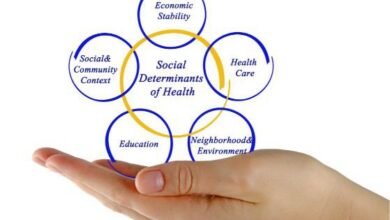Significance of Mindfulness and Meditation in Addiction Treatment

Millions of people worldwide suffer from the complicated and multidimensional disease of addiction, which affects a person’s mental, emotional, and spiritual health in addition to their physical health. Although behavioral therapy and pharmaceutical interventions are frequently the mainstays of traditional addiction treatment approaches, the significance of incorporating holistic techniques like mindfulness and meditation into treatment plans is becoming increasingly apparent. The importance of mindfulness and meditation in addiction therapy is discussed in this article, along with how these techniques can aid in recovery and encourage long-term sobriety.
Understanding Mindfulness and Meditation:
Deliberate attention to the current moment, free from judgment or attachment to ideas, feelings, or experiences, is known as mindfulness. It entails developing an awareness of one’s thoughts, feelings, and physical experiences in addition to their surroundings. On the other hand, proper meditation practice entails teaching the mind to silence the inner monologue and focus. It can take many different forms; some of them are body scans, loving-kindness, and focused attention meditation.
The Significance of Mindfulness and Meditation in Addiction Treatment:
Cultivating Self-Awareness:
- Self-awareness is enhanced by mindfulness and meditation techniques, which assist people in observing their thoughts, feelings, and cravings without acting rashly or critically. With increased awareness comes the ability to identify substance use triggers and create more positive coping strategies for better impulse control and craving management. At places like the addiction treatment Nashville Center, these strategies are highly focused on.
Managing Stress and Anxiety:
- Mental health conditions like anxiety, depression, and post-traumatic stress disorder (PTSD) frequently co-occur with addiction. Through the activation of the body’s relaxation response and the promotion of calm and equanimity, mindfulness and meditation have been demonstrated to lower levels of stress and anxiety. Through the integration of these techniques into addiction therapy and detox in San Francisco, patients can acquire the ability to manage stressors without turning to substance abuse as an unhealthy coping method.
Enhancing Emotional Regulation:
- An incapacity to control emotions or deal with unpleasant emotions like grief, rage, or loneliness is frequently the root cause of substance misuse. People can learn to see and accept their emotions without getting overcome by them by engaging in mindfulness and meditation activities. People who have mastered emotional regulation and resilience are better able to handle the ups and downs of recovery and stay sober in the face of difficulty.
Building Resilience to Cravings:
- One issue that many people in addiction recovery have is cravings. People who practice mindfulness and meditation can learn to accept and endure urges without giving in to them. People can lessen the severity and duration of cravings by practicing non-reactivity and non-attachment to them, which lowers the risk of relapse and encourages sustained sobriety.
Fostering Connection and Compassion:
- Addiction frequently causes people to withdraw from their social networks and lose their feelings of interpersonal connection. In the IOP Program Atlanta, practices in mindfulness and meditation foster compassion, empathy, and a sense of connectedness with oneself and others. Through cultivating a feeling of unity and acceptance, these activities assist people in mending relationships, fortifying social support systems, and improving their interpersonal abilities.
Promoting Relapse Prevention:
- By giving people a toolkit of coping mechanisms and techniques to handle cravings, stress, and substance use cues, mindfulness and meditation are effective relapse prevention techniques. People can lay the groundwork for long-term recovery and overcome the difficulties of sobriety with increased resilience and self-efficacy by incorporating these activities into their daily lives.
Cultivating Meaning and Purpose:
- Recovering from addiction involves more than just quitting drugs; it also entails discovering fulfillment, meaning, and purpose in life. At the mental health facilities in Georgia, people can lead more meaningful and purposeful lives by reconnecting with their values, objectives, and aspirations through mindfulness and meditation activities. People can develop a sense of purpose that keeps them motivated and steadfast in their sobriety by directing their actions in a way that is consistent with their basic values.
For those undergoing addiction treatment, mindfulness and meditation provide significant advantages that aid in their road to recovery and encourage sustained abstinence. Through the development of self-awareness, stress and anxiety management, emotional regulation enhancement, resilience building against cravings, connection and compassion fostering relapse prevention promotion, and meaning and purpose cultivation, these practices enable people to take back their lives and flourish in recovery.
Mindfulness and meditation are essential elements of holistic addiction treatment programs that provide people with the abilities, resources, and encouragement they need to overcome addiction and live a life of health, wholeness, and well-being.



